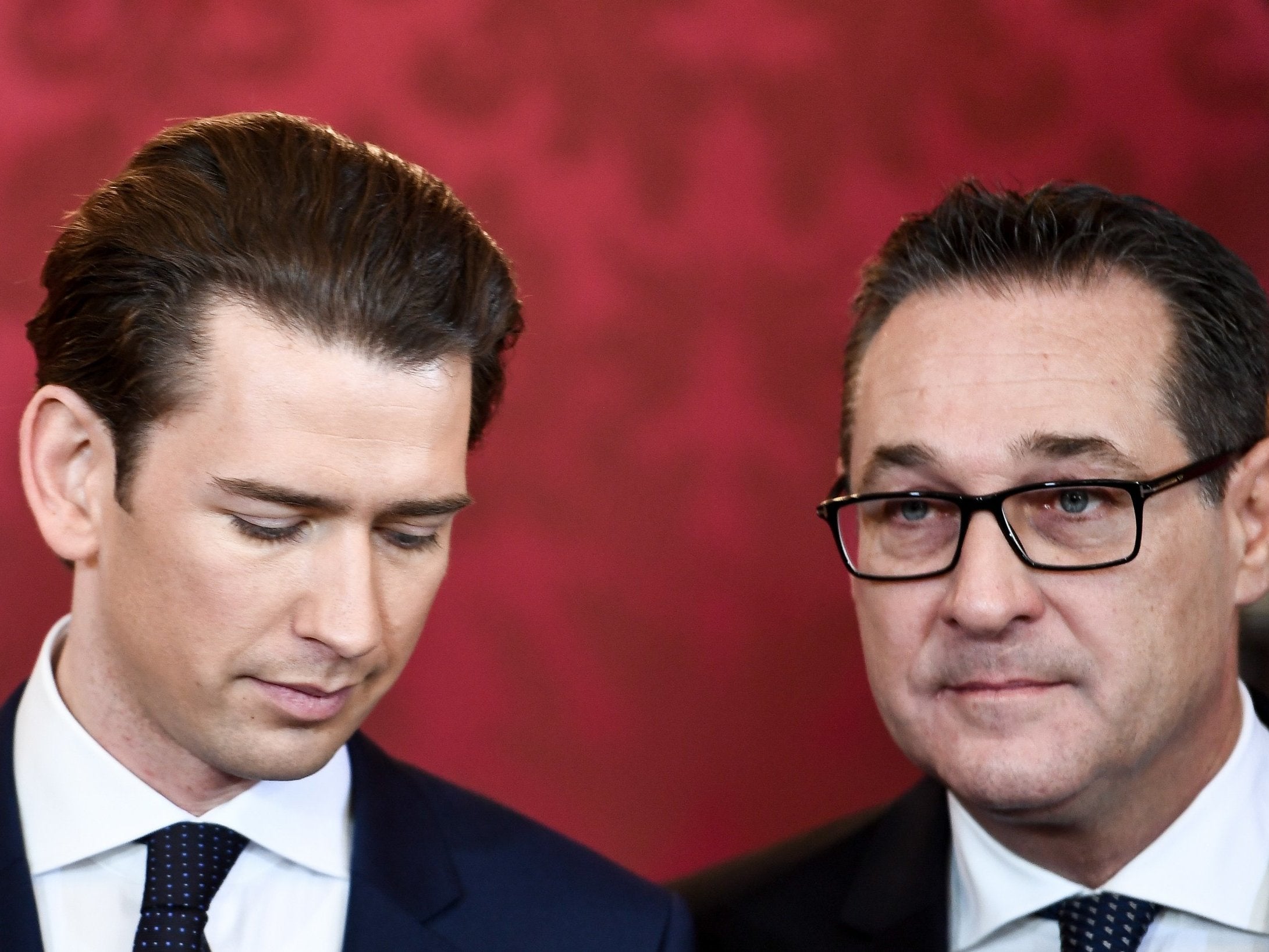Austria gets first woman leader after corruption scandal topples right-wing government
But Sebastian Kurz could make a comeback in early elections scheduled for later this year
Your support helps us to tell the story
From reproductive rights to climate change to Big Tech, The Independent is on the ground when the story is developing. Whether it's investigating the financials of Elon Musk's pro-Trump PAC or producing our latest documentary, 'The A Word', which shines a light on the American women fighting for reproductive rights, we know how important it is to parse out the facts from the messaging.
At such a critical moment in US history, we need reporters on the ground. Your donation allows us to keep sending journalists to speak to both sides of the story.
The Independent is trusted by Americans across the entire political spectrum. And unlike many other quality news outlets, we choose not to lock Americans out of our reporting and analysis with paywalls. We believe quality journalism should be available to everyone, paid for by those who can afford it.
Your support makes all the difference.Austrian MPs have formally sworn in the country’s first woman leader after her predecessor was ousted over a video sting scandal.
Brigitte Bierlein will be interim chancellor until the country holds early elections by the end of September this year.
The 69-year-old, a former chief prosecutor, will lead a government of non-partisan experts. She has no formal political affiliation but is seen as strongly conservative.
Sebastian Kurz, who had been chancellor since just December 2017, lost a confidence vote a week ago after his far-right coalition partner was caught on video promising lucrative contracts in exchange for political favours.
He may yet again be chancellor, however, as his party is surging ahead in opinion polls ahead of the planned contest later this year.
A survey published by the country's Krone newspaper showed Mr Kurz's conservative Austrian People's Party (ÖVP) on 38 percent, up on the 31 per cent it won at the last election.
The centre-left social democrats (SPÖ) are trailing on 21 per cent, down from 27 per cent.
The so-called "Ibiza Affair" rocked Austrian politics after a German newspaper published a video of FPÖ leader Heinz-Christian Strache meeting with a woman who purported to be a Russian billionaire at a holiday home on the Spanish island.
In the recording, filmed in the run-up to the 2017 election, the woman suggests she could buy the country’s leading newspaper and change its editorial stance to favour the far-right party. Mr Strache suggests lucrative public contracts could be awarded to her in exchange.

The poll, which is broadly in line with other recent surveys, shows the FPÖ or Austrian Freedom Party's support down at 19 per cent from the 26 per cent they won in 2017.
The survey also shows the liberal NEOS party and the Greens up by 2.5 per cent each, on 10.5 per cent and 8.5 per cent respectively, in fourth and fifth place.
At the European level the Ibiza Affair is a further set-back for the right-wing populists hoping to build an “axis” of support across the continent: the FPÖ has of late been one of the more successful far-right parties in the EU, with Mr Strache using his position as interior minister to promote anti-immigrant policies.
Populist parties did not do as well as predicted on an EU-wide basis in last months European parliament elections, though they made notable gains in the UK and Italy.

Join our commenting forum
Join thought-provoking conversations, follow other Independent readers and see their replies
Comments